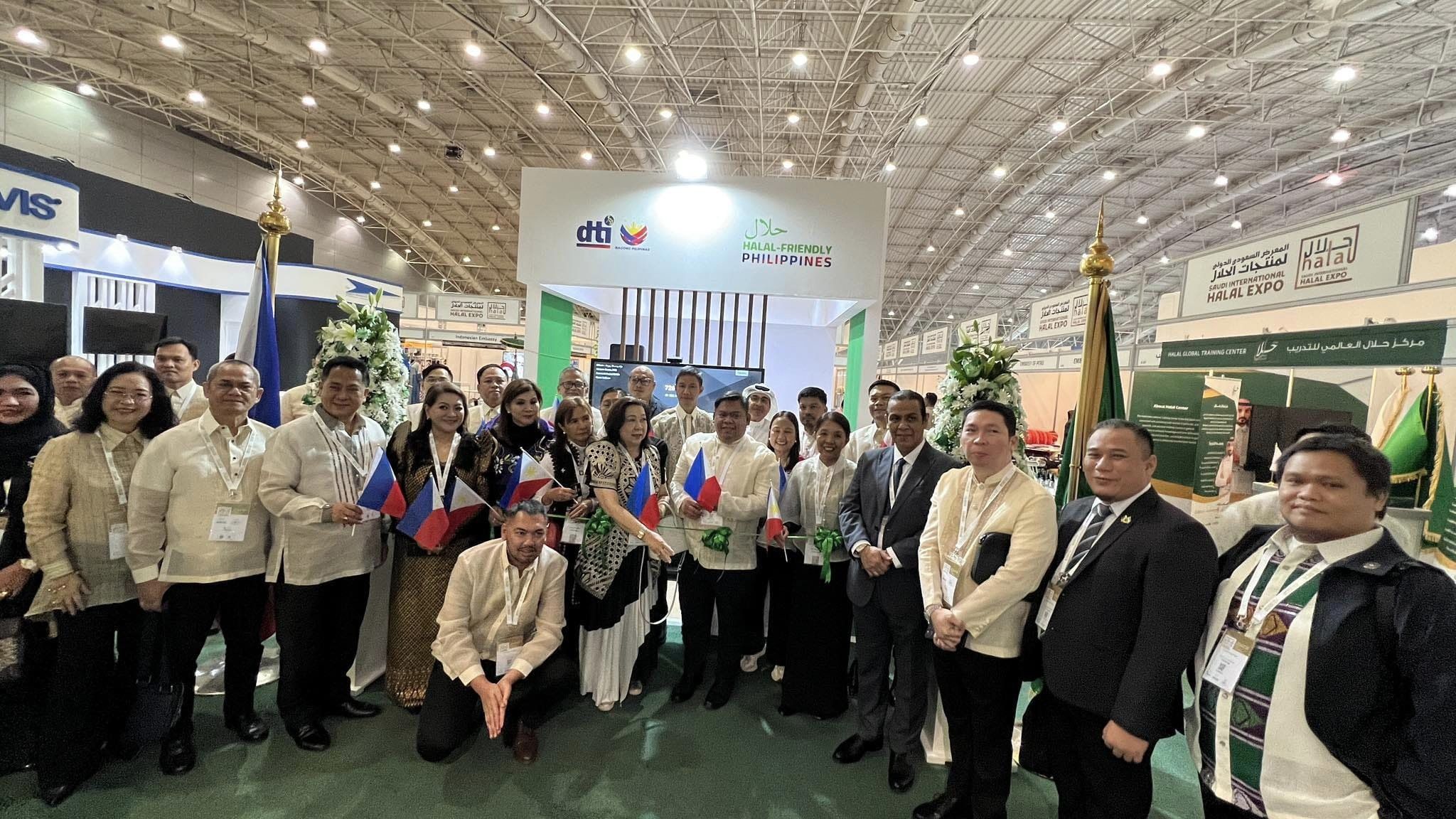Filipino entrepreneurs recently made a powerful impact at Saudi Arabia’s Halal Expo, marking the Philippines' first participation in the Middle East's largest halal trade exhibition.
Among the Philippine delegation’s standout was Jemil Araos, a landscape designer and micro-exporter. His company, Lime Tree Farm Solutions, based in Laguna, has swiftly risen as a leader in the production of lime, insulin plant, coconut, and bee-based health products.
“As one of the pioneers in the industry, we pride ourselves on creating exceptional products that cater to health-conscious individuals,” Araos said. His product lineup includes Organic Insulin Plant Capsules, Turmeric Juice Drink, and Propolis Drops. By blending organic ingredients with advanced processing techniques, Araos’ creations appeal to the health-conscious while preserving the benefits of traditional remedies.

Another impressive Filipino presence at the expo was Isagani de Ocampo, founder of Kakaw Galleon. A former seafarer and pastry chef, De Ocampo turned to chocolate-making during the Covid-19 pandemic, using his expertise to elevate Filipino cacao on the international stage.
De Ocampo’s company, Kakaw Galleon, celebrates the unique qualities of Philippine cacao through artisanal chocolates he calls “local imported” due to their commitment to local flavor while meeting global standards. His story of transition from an overseas Filipino worker to a homegrown entrepreneur resonates deeply with the Filipino community, who find pride in his success abroad and his commitment to representing Filipino culture globally.
What is halal?
“Halal” is an Arabic term meaning “permissible,” and it encompasses a wide array of products and services beyond food, including cosmetics, personal care items, pharmaceuticals, finance, and even tourism. For a product to be certified as halal, it must meet standards set by Islamic law, ensuring it is free from any prohibited ingredients or practices. This certification assures Muslim consumers that the products align with their religious values, which has driven the halal market to grow exponentially in recent years.
Philippines’ halal vision
The Philippines’ debut at the Halal Expo highlighted the country’s broader ambition to carve out a place in the global halal market, which is projected to surpass $7 trillion. Organized by the Department of Trade and Industry (DTI), the “Halal-friendly Philippines” campaign featured a diverse array of exhibitors from the food and beverage industry to tourism, finance, and construction sectors. By promoting halal-certified products and services, the Philippines hopes to attract foreign investments and generate new employment opportunities in line with the government’s goal of establishing a robust halal economy.
As a predominantly Catholic nation with a 10 percent Muslim population, the Philippines has a unique opportunity to grow in the halal sector. The government aims to secure $4 billion in halal-related investments and create 120,000 new jobs by 2028. With the country’s vast agricultural resources, particularly in coconut oil, nutraceuticals, and tropical fruits, halal-certified exports are poised to become a key driver in the Philippines’ economic growth.
One of the most promising areas is halal-friendly tourism. Recognizing that tourism is a critical industry that suffered during the pandemic, the Philippine government is now targeting Muslim travelers by developing accommodations and attractions that cater to their needs. These efforts form part of a broader tourism recovery strategy aimed at attracting a wide range of international visitors.
1st Halal Expo Philippines
To further boost the country’s halal industry, the DTI has partnered with the Department of Tourism and the National Commission on Muslim Filipinos for the Halal Expo Philippines and the first Philippines International Health and Wellness Congress on Nov. 14 to 16 at the World Trade Center.
The event aims to bring in buyers from the Middle East and various other countries to position the Philippines as a Muslim-friendly health and wellness destination.